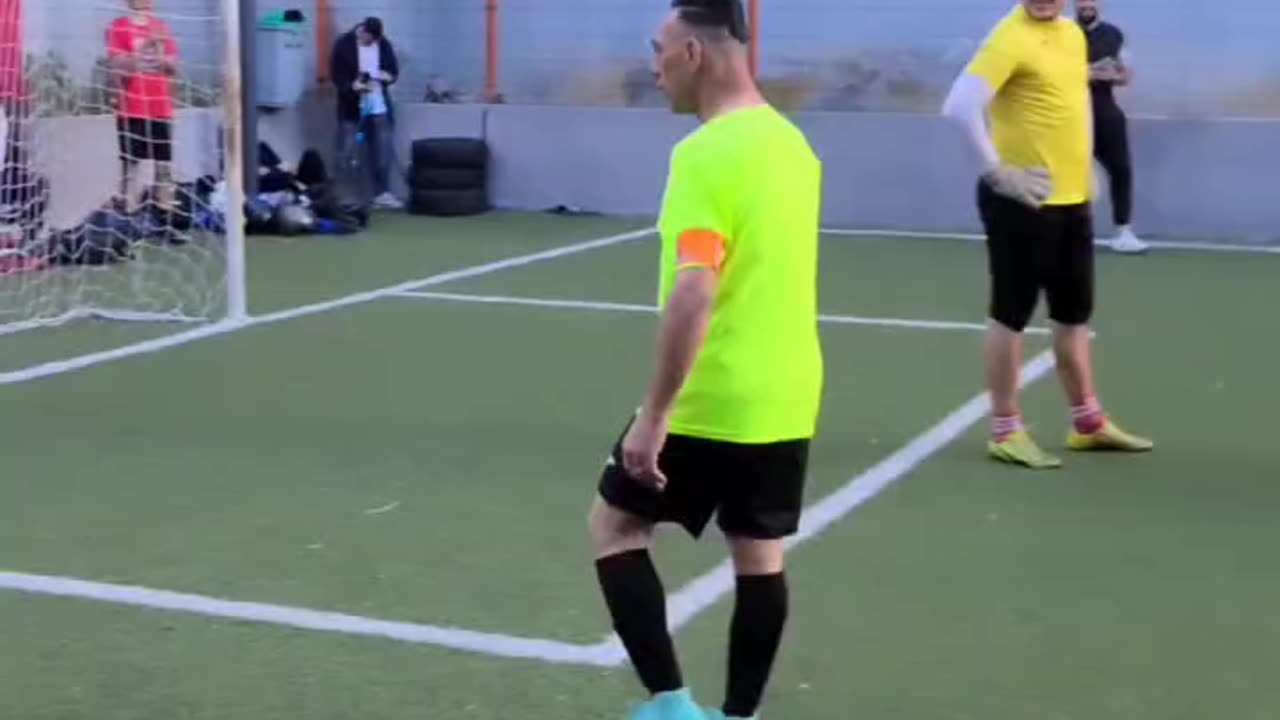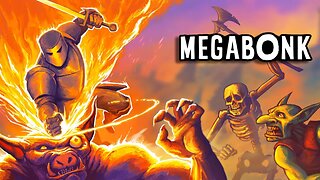Premium Only Content

Cool genius player 😂
Follow us to see fun and entertaining videos
https://rumble.com/c/c-6275612
Cognitive Abilities
Memory: The capacity to store, retain, and recall information. This includes short-term, long-term, and working memory.
Attention: The ability to focus on specific stimuli or tasks while ignoring distractions.
Problem-Solving: The process of finding solutions to difficult or complex issues.
Critical Thinking: The objective analysis and evaluation of an issue to form a judgment.
Creativity: The ability to generate new ideas, solutions, or artistic expressions.
Language and Communication: The ability to understand and use language effectively for communication.
Learning and Adaptation: The capacity to acquire new knowledge or skills and adapt to new situations.
Physical Abilities
Strength: The ability to exert force against resistance.
Coordination: The harmonious functioning of muscles to execute movements smoothly and accurately.
Endurance: The ability to sustain prolonged physical or mental effort.
Flexibility: The range of motion in joints and the ability to move muscles freely.
Balance: The ability to maintain the body's center of gravity over its base of support.
Emotional and Social Abilities
Emotional Intelligence: The ability to recognize, understand, and manage one's own emotions and the emotions of others.
Empathy: The capacity to understand and share the feelings of another person.
Social Skills: The ability to interact effectively with others, including communication, cooperation, and conflict resolution.
Resilience: The capacity to recover quickly from difficulties and adapt to challenging circumstances.
Self-Regulation: The ability to manage one's behavior, emotions, and thoughts in pursuit of long-term goals.
Specialized Abilities
Musical Ability: The capacity to understand, create, and perform music.
Athletic Ability: The skills and physical prowess required to excel in sports or physical activities.
Artistic Ability: The talent and skill to create visual, performing, or literary art.
Development and Enhancement
Human abilities can be developed and enhanced through education, practice, training, and experience. Factors such as genetics, environment, motivation, and access to resources also play significant roles in the development of these abilities.
Limitations and Variations
It's important to recognize that human abilities vary widely among individuals due to genetic differences, cultural backgrounds, experiences, and personal interests. Additionally, abilities can change over time due to aging, injury, illness, or other life circumstances.
Overall, the spectrum of human abilities is vast and diverse, reflecting the complexity and adaptability of the human species.
Footballers, often referred to as soccer players in some countries, are athletes who specialize in playing the sport of football. They exhibit a blend of physical prowess, technical skill, strategic understanding, and mental toughness that enables them to excel on the field. Here’s a closer look at what defines a footballer and the key aspects of their profession:
Physical Attributes
Endurance: Footballers need exceptional cardiovascular fitness to maintain high energy levels throughout the 90-minute match, often covering more than 10 kilometers per game.
Strength and Power: Strength is crucial for shielding the ball, tackling, and withstanding physical challenges, while power contributes to explosive movements like sprinting and jumping.
Agility and Speed: Quick reflexes and the ability to change direction swiftly are vital for dribbling, evading opponents, and reacting to the dynamic flow of the game.
Coordination and Balance: Superior coordination allows footballers to control the ball with precision, while balance helps in maintaining stability during complex maneuvers.
Technical Skills
Ball Control: Mastery in controlling the ball with various parts of the body—feet, chest, head—is fundamental.
Passing and Receiving: Accurate passing and the ability to receive and control passes under pressure are essential for maintaining possession and creating scoring opportunities.
Dribbling: Skillful dribbling enables players to navigate through defenders and maintain possession.
Shooting: Precision and power in shooting determine a player’s ability to score goals from different positions on the field.
Defensive Skills: Tackling, intercepting passes, and marking opponents are critical skills for defenders.
Tactical Understanding
Game Intelligence: This involves reading the game, understanding opponents’ strategies, and making quick decisions.
Positioning: Knowing where to be on the field at any given time, both in attack and defense, to maximize effectiveness.
Team Play: Footballers must work cohesively with their teammates, understanding and anticipating their movements and intentions.
Mental Toughness
Concentration: Maintaining focus throughout the game is essential, especially during critical moments.
Resilience: The ability to recover quickly from setbacks, such as a conceded goal or a personal mistake.
Confidence: Belief in one’s abilities and decisions is crucial, particularly under the pressure of high-stakes matches.
Professional Life
Training: Rigorous daily training regimes are designed to enhance physical fitness, technical skills, and tactical understanding.
Nutrition and Recovery: Proper diet and recovery practices, including rest, physiotherapy, and sometimes psychological support, are integral to maintaining peak performance.
Matches and Competitions: Footballers participate in domestic leagues, international competitions, and tournaments, often involving extensive travel.
Media and Public Engagement: Professional footballers are public figures and often engage with media, fans, and participate in community and promotional events.
Development and Pathways
The journey to becoming a professional footballer typically begins at a young age, with many starting in youth academies associated with professional clubs. Talent identification, coaching, and gradual progression through youth, reserve, and senior teams are common pathways. Continuous development and performance can lead to opportunities in higher leagues and national teams.
In summary, footballers are highly skilled athletes who blend physical abilities, technical expertise, tactical knowledge, and mental strength to excel in the sport. Their profession demands dedication, continuous development, and a passion for the game, making them celebrated figures in sports culture worldwide.
-
 50:18
50:18
Side Scrollers Podcast
3 hours agoLIVE SPECIAL EVENT - Blabs SPITS on Her Ancestors by BURNING Pasta
23.3K6 -
 LIVE
LIVE
putther
2 hours ago $0.91 earned⭐ Bounty Hunting on GTA Online & GTA 5 RP ❗
137 watching -
 LIVE
LIVE
Joker Effect
48 minutes agoYou Will Never Believe How Cooked Kick Streamers Are. Come Debate Me If You Think I am Wrong!
414 watching -
 LIVE
LIVE
FrizzleMcDizzle
2 hours agoSilent Hill f - NEW HORROR GAME - COME CHAT
69 watching -
 LIVE
LIVE
Mally_Mouse
6 days ago🌶️ 🥵Spicy BITE Saturday!! 🥵🌶️- Let's Play: Unrailed 2!
102 watching -
 23:53
23:53
MYLUNCHBREAK CHANNEL PAGE
23 hours agoIstanbul SHOULD NOT Exist - Pt 3
37.2K17 -
 LIVE
LIVE
RaikenNight
1 hour agoMEGABONK
24 watching -
 LIVE
LIVE
Misfit Electronic Gaming
5 hours ago"LIVE" "Clover Pit" Is out Now "HELLDIVERS 2" Managed Democracy Maybe REPO +More
14 watching -
 LIVE
LIVE
ManoloCalifas
3 hours ago🔴 LIVE - DARK SOULS III SEAMLESS CO-OP KINDA VIBES
17 watching -
 LIVE
LIVE
StuffCentral
3 hours agoBad Company Presents: Ball in the fall, Two 1v1 cash prize tournaments back to back!
68 watching